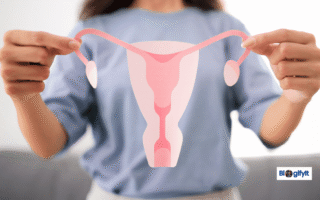Why 1st Trimester is The Toughest: 5 Alarming Signs
Are you in your 1st trimester? Do you know why the 1st trimester is the toughest, or, you can say, the most challenging phase of your pregnancy? Well, if not, then this blog is for you.
While the entire nine months of pregnancy bring their own unique challenges, many expectant mothers agree that the first trimester is the most difficult phase. If you’re currently navigating this tough but exciting period, you’re not alone.
The first trimester, spanning from week 1 through week 12, is when your body undergoes a staggering number of changes in a short period of time. As your hormones begin to surge and your body works overtime to nurture the developing baby, you may experience a whole host of unpleasant symptoms. Morning sickness, fatigue, mood swings, food aversions – it can feel like a rollercoaster ride some days.
But there are reasons why this phase tends to be particularly challenging compared to what’s ahead. In this blog post, we’ll explore the primary causes that make the first trimester so tough for many moms-to-be.
What Makes the 1st Trimester Challenging?

There are several reasons why the 1st trimester is the toughest. Here are some of them:
1. It’s Overwhelming
In the first trimester, many women feel overwhelmed by all the changes in their bodies and the amount of information they are expected to learn about pregnancy. Even if you’ve been pregnant before, each pregnancy can feel completely new and unfamiliar. The sheer volume of books, websites, and other resources on pregnancy can be overwhelming to navigate.
2. Morning Sickness
Despite the name, morning sickness doesn’t just occur in the morning for many women. Nausea and vomiting can strike at any time of day during the first trimester. Around 70% of pregnant women experience some degree of morning sickness. Eating small, frequent snacks with protein and carbohydrates may help keep nausea at bay by maintaining steady blood sugar levels. Though unpleasant, morning sickness may actually be a sign of a healthy pregnancy.
3. Breast Tenderness
The surge of hormones in early pregnancy causes the breasts to become tender, swollen, and overly sensitive in preparation for producing milk. This breast tenderness can make it painful to wear a bra or have any contact with the breasts. Finding a soft, well-fitting maternity bra and avoiding stimulation may relieve the tenderness in the second trimester.
4. Anxiety and Worry
The first trimester carries the highest risk of miscarriage, which can cause significant worry and anxiety, especially for those who have experienced a prior pregnancy loss. Unless there are warning signs like bleeding or cramping, normal pregnancy discomforts can indicate a healthy pregnancy. However, the fear of miscarriage often persists.
5. Waiting for Appointments
After getting a positive pregnancy test, most women have to wait 4-8 weeks for their first prenatal appointment to confirm the pregnancy is progressing normally. This waiting period heightens anxiety as the pregnancy doesn’t yet feel real without being able to see or feel the baby.
6. Pregnancy Doesn’t Feel Real Yet
In the first trimester, with no obvious belly and an inability to feel the baby move yet, the pregnancy can feel imaginary or unreal for many women and their partners until they get visual confirmation on an ultrasound.
7. Deciding When to Share the News
A common dilemma in the first trimester is deciding when to share the pregnancy news with others. Some prefer to wait until after the first trimester due to wanting privacy, processing the news themselves first, or avoiding having to unshare if a miscarriage occurs. Others are excited to share the news right away. There is no right or wrong approach.
Early Pregnancy Danger Symptoms You Cannot Ignore

During early pregnancy, it’s crucial to be aware of certain dangerous symptoms that require immediate medical attention. While common symptoms like nausea and frequent urination are typically manageable, any significant or unusual issues should be promptly discussed with your healthcare provider. Here are some specific symptoms to watch out for:
1. Persistent Belly Pains
Mild cramps are generally harmless, but if you experience strong, steady pains in the lower abdomen or pelvic area during the first trimester, it could indicate an ectopic (tubal) pregnancy. This condition is serious and requires immediate medical intervention.
2. Vaginal Bleeding
Light spotting can be normal, but bleeding that resembles a menstrual period or involves the passage of fluid or tissue through the vagina is concerning. Heavy bleeding is a potential sign of miscarriage. Any bleeding during pregnancy should be reported to your doctor to ensure the pregnancy is progressing normally.
3. Abdominal Cramping
Abdominal cramping can sometimes be normal, mimicking period-like cramps due to morning sickness, indigestion, or diarrhea. However, it can also be a sign of miscarriage, especially when accompanied by vaginal bleeding. Consult your healthcare provider immediately if you experience cramping.
5. Severe Swelling, Headache, or Discomfort
Some swelling, particularly in the feet, is expected during pregnancy. However, extreme swelling, severe headaches, or significant discomfort may indicate high blood pressure, which can stress your kidneys and heart. These symptoms could signal serious complications like preeclampsia and should not be ignored.
6. High Fever
A study published in Science Signaling stated that maternal fevers during the first trimester could lead to congenital disabilities. A fever during pregnancy, particularly one over 100.4°F (38°C), can indicate infection.
Infections can pose risks to both the mother and the baby. Hence, you must contact your healthcare provider if you experience a high fever. Prompt treatment is crucial to prevent complications.
Final Thoughts
We hope that now you know why the 1st trimester is the toughest. While every pregnancy journey is unique, the overwhelming nature of the early stages, coupled with symptoms like morning sickness, fatigue, and anxiety, can make the first trimester particularly challenging for many expectant mothers. However, it’s essential to remember that these difficulties are temporary, and as the pregnancy progresses, many women find relief from the discomforts of the first trimester.




